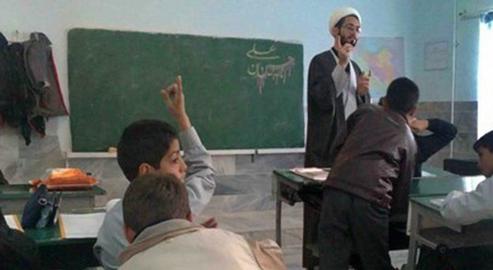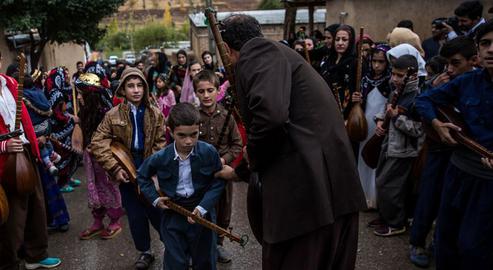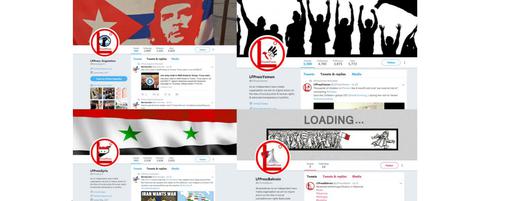The repression of religious minorities has a long history in the Iranian educational system. Although children from minority groups faced difficulties in schools before the 1979 Islamic Revolution, the oppression of these children and adolescents systematically increased after the Revolution. Some students either have to hide their religious identities or lie about it to pursue higher education. They all have the same fate: they risk being expelled from schools or universities or banished by their peers if their beliefs are exposed.
Discrimination against religious minorities goes beyond education and encompasses all aspects of social life in Iran. Religious minorities are considered second-class citizens. The suffering is sometimes lessened with the sympathies of those who do not belong to religious minorities. But is that enough? What challenges do students with different religious beliefs face when they step out of the safety of their families and enter society?
In an interview with three members of religious minority grouos, this report recounts their stories and the impact their early difficulties had on their lives.
Karolyn, an Armenian
I was in the third grade in middle school when the father of one of my friends passed away. They were Armenians from southern Iran. We were classmates and neighbors. We decided to pay them a visit, with 12 other children, to offer our condolences. Our arrangement was for a Friday around 11:00 AM. Two days had passed since the death of their father and their household was at relative peace after the upset of losing a loved one.
As we gathered on the street, one of our friends said, "Guys, my mother told me to go and offer my condolences, but not to eat anything, because they were not Muslims."
None of us asked “Why?” at the time. But this was my first encounter with living in a society that discriminates and I will always remember it.
In Karol’s house, there was a picture of her father with two black candles lit on a table with a cashmere tablecloth and a bowl of dates. Just like when someone in our family died. Rental chairs were arranged around the hall, and several women in black dresses and black nets were praying and whispering.
Everything in Karol's grieving house was like ours at a time of mourning. She was like us. Her height and size, the way she talked, the games she played, her jokes and laughter. Like us, she hated some foods, liked some lessons more and some less. She loved some teachers and hated others.
Now that I have found old friends through social media, a little over 30 years after this experience, I called Karol to hear the story from her once again; to ask if she ever understood why the halva and dates they offered us were left intact.
Karol did not remember anything about that particular day: "I was so sad that I do not remember that day. But do you remember the daughter of the Friday prayer Imam in our class? Once when I was in high school among a group of kids, she told me: my father said that you are najis (unclean) and that we should not talk to you or shake your hand. I asked her on what basis your father said such a thing. My father said that you do not wash yourself when you go to the bathroom! I laughed and said: how can your father be so confident? He is not with us in the bathroom.”
Karol laughed and continued: "She was silent and said nothing but something was shaken in her. A few days later, I was alone in one of the classrooms at the break. She came in and closed the door. She approached me hesitantly and said that she always wanted to be my best friend, and then she hugged me for a few moments and left without saying a word. I always thought that if someone said something at school, they were actually parroting what they had heard from adults. I never took it personally."
Reza, a Yarsan
Reza Shahmoradi is of the Yarsan religious minority. He lives in Australia now and has two sons: "I was born and raised in a village near Bijar. The village was inhabited by Yarsans, and Sunni and Shia Muslims. I got to know the beliefs of the Yarsans at home and in the safety of my family before entering school. The sound of the Tanbur filled our house at all times. But everything changed when I went to school. I entered a society where a high and invisible wall was built between me and the Muslim majority. I still get angry thinking about those days."
Reza points to the demographic and rural nature of his birthplace. They did not have access to resources that could help raise awareness and Shia teachers and clerics who came to teach in the area spread hatred: “Before adolescence, we, the children who had just entered the school, regarded teachers as gods on earth. We thought everything they said was true. I thought like that, and so did the other children. I remember that the teachers, knowing that we were Yarsan, filled our young minds with strange rumors about the beliefs of Yarsan that I knew were false. But I did not know how to stand up to their lies, nor did I have the power."
"One of the criticisms I have had of the Yarsan way is that women are not allowed to enter the Yarsan shrine, which is called the Jamkhaneh," he recalls with a sigh. “I had seen in my childhood that women were not allowed there. I was nine years old when the school's religious teacher started saying things about the Yarsans. He said that the men and women of Yarsan go to the Jamkhaneh at night, turn off the lights, and have sex with anyone they encounter. I was amazed. I was sure what he was saying was a lie. But he was a teacher. The person who we thought knew everything, better than us and our families. I hated my family. I was constantly asked by my friends at school how I could be sure that my real father was the same man who lived in my house. Remembering those days still makes me furious. The anger is still with me in my adulthood and I have visited therapists many times because of it.”
This Yarsani citizen says it is not possible for people who are not minorities to understand how being in a minority group can change the course of one’s life. "I wanted to teach," he says, speaking of the obstacles those in charge of selecting teachers placed in his path. “Despite restrictions and discrimination, I was always the best student in the school. In high school, I became a student in an excellent high school in Sanandaj and lived in a dormitory over those years. I was accepted with a very high score at Teacher Training University. After the first stage of admission, the selection officer went to the village where my parents lived to do a local investigation and found out that we were Yarsan. He called me. I will never forget how he shouted and said, ‘How can I let you teach Muslim children?’ While in those days, as part of my military service, I taught five elementary school classes for free in a remote village. In other words, when I worked for free, there was no problem. But when I was supposed to be paid like other citizens, they called me Najis, unclean, and I was not allowed to teach Muslim children.”
Peymaneh, a Baha’i
I met Peymaneh in my high school years. She is the most beautiful girl I have ever seen. She came and went to school quietly, always with his mother or father. In the early 1990s, when society had moved away from the hardships, closed environment, and the dark years of the Revolution and the war, and social gatherings were returning to people's lives, something bitter happened to Peymaneh.
"In my family, my parents always insisted that Baha'is should love everyone because we believe in making the world a better place to live," says Peymaneh, who emigrated from Iran many years ago and is now mother of a young boy. “I had never felt different back then, until my eighteenth birthday. I had ordered a cake, bought new clothes, and invited all my friends. I decorated the room and waited for my friends to visit. But of all the people I had invited, only two came to my party. They sat for a few minutes, gave their presents and left. Then I found out later that it was because we were Baha'is. Before that, I tried to forgive the bad because of my family's teachings. I followed the same notion later. Looking back at that day, I see how much I hated them all, how I felt betrayed."
Peymaneh says she already knew that being a Baha'i was controversial at school. But she thought it was only the adults that cared, not children: “I remember in middle school we had a lesson in the history book about the Baha'i faith and how it came to Iran. I was excited and thrilled from the beginning of the year. What a good thing! After all, the Baha'i faith was the subject and I could talk about that. I spent days thinking about what to say when the lesson came about, how to correct the falsehoods I had heard from the kids, and what to answer if someone asked a question. The promised day came and I started the discussion with enthusiasm and excitement. The textbook had many mistakes, and in my own opinion I was updating my teacher and classmates with the right information. At the end of the session, I was told to bring my father to school the next day."
Peymaneh says that the next day, when she went to school with her father, she was not allowed in the headmaster’s office. But after that, her family insisted she should "take care of yourself" more than ever: “My father told me later that two women from the Public Space Police were in the school and told him, in the presence of the headmaster and the dean, that his daughter, me, was seeking to draw children’s attention to the Baha’i faith with the goal of promoting it. Something I had never thought of. My father had told them that day that we were teenagers trying every trick to escape from school, and that this was just childish mischief. But since then, my parents always accompanied me to and from school. Because they were afraid something bad would happen to me."
The major international treaties on human rights and the rights of children clearly state that education is a basic right of every human being. This means the citizens of a country of any religion, cultural identity or social status should have the right to education without any discrimination. This right belongs to individuals because they are human beings and other people should not deprive anyone of it on religious, ideological, racial or political grounds.
Iran is a signatory to these Charters and to many other international treaties, all of which are based on the right to education and the freedom of religion or belief. The legal meaning of this international commitment is that all Iranian citizens or those living in Iran must be able to enjoy this right without discrimination.
The experience of the Baha’is discrimination and deprivation is not comparable to other religious minorities. In addition to overt and covert pressures and discrimination, school textbooks and the state-affiliated media spread hate propaganda about them. Baha'is are openly insulted and humiliated in textbooks and in official forums, and are labeled "najis" (unclean), "anti-religious," "infidels" and "foreign spies."
Related stories:
Iranian Christians Forced to Separate from Adopted Daughter
Iranian Authorities Step up Punishment of Christians
Official Report Calls Yarsan Religious Minority a “Security Threat”
Yarsanis Ask to be Recognized as a Religious Minority in Iran's Constitution
Baha'i University Candidates Summoned for Interrogation
Baha'is Barred from Entering University for the Fortieth Year in a Row
visit the accountability section
In this section of Iran Wire, you can contact the officials and launch your campaign for various problems


























comments